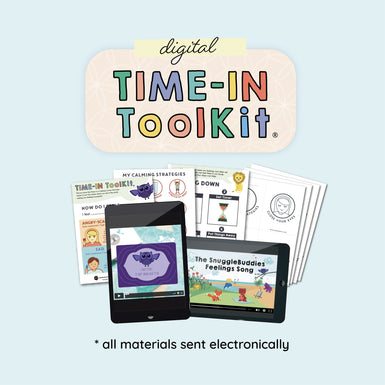For many years, I have centered my work around one message: Connection is everything. It’s our ticket to enjoying this parenting journey more. Of course, the question always then becomes, “How can we set boundaries and correct our children without losing that connection?” If we confuse “staying connected” with “never upsetting our children,” things begin to get very tricky.
I have to admit, when I was first transitioning to positive parenting 13 years ago, I made the mistake of confusing the two. At the realization of how important my relationship was with my kids, I became fearful of ruining our bond. As a result, I struggled with setting and enforcing limits which had me constantly teetering between permissiveness and authoritarian parenting. When my permissiveness inevitably led to chaos, I reverted to my traditional punitive ways briefly before trying again to be the positive parent I desired to be. So, if you’re struggling with something similar in your parenting journey, I’d like to share with you what helped me learn to stand firm yet gentle in my position as a leader.
Here’s something to remember. A good connection isn’t feeble.
It isn’t going to break because you say no. It won’t crumble when you hold a boundary or even allow a consequence. A temporarily upset child (or parent) doesn’t equal a broken bond. When I was tip-toeing around my kids, afraid of breaking our connection by upsetting them, I felt powerless to correct their behavior. When I realized our relationship wasn’t that fragile, I was able to set and enforce limits and correct my children’s off-track behavior with confidence.
Think of parenting like a balance scale for a moment.
Ideally, there will be lots of positive, happy, snuggly, smiling moments and fewer negative (correcting, reprimanding, upsetting, frustrating) moments. When we focus too much on correcting or reprimanding and don’t give enough positive attention, the scale starts to tip in the wrong direction. When the negative outweighs the positive, connections crumble.
On the other hand, if we try to make sure that all we have are positive interactions, we will be blatantly ignoring or pushing down a lot of things, because life isn’t always pleasant. If our kids never hear no or if they never encounter adversity, they’ll be woefully unprepared for life’s challenges. They’ll lack resilience, grit, and character. I’m not saying we have to make things hard on our kids for them to learn. I’m just saying that we cannot always rescue and coddle them either.
Ah, but there’s a small caveat. Even though we may have fewer negative moments than positive moments, being harsh or shaming during correction is still damaging to the relationship. In other words, saying “No, I won’t allow you to do that” isn’t damaging, but “You’re a bad boy” is. A solid connection can handle adversity, but shame will always be emotionally wounding.
It turns out that shaming is all too common, and although children are very forgiving when we mess up, harsh words and actions leave their mark. So, learning how to approach negative behavior positively is important for keeping our connections strong, and this requires a shift in mindset and approach.
Changing Your Mindset
Positive parenting requires a shift from a fear-based mindset to a love-based mindset. Both authoritarian and permissive parenting are based on fear. The fear-based mindset says:
I must control my child’s behavior. (authoritarian)
My child learns not to repeat bad behavior by being punished. (authoritarian)
I’m the dominant figure; my child is “under” me. (authoritarian)
My child will hate me if I upset him. (permissive)
Trying to positively parent with a fear-based mindset doesn’t work because the focus is still on who has the control, you or your child.
The love-based mindset says:
My role is to teach my child appropriate behavior.
My child learns by my example via limits that are set and enforced respectfully.
While I am the leader, my child is a human being with equal rights to be respected and heard.
The positive parenting shift occurs when you move away from controlling your child’s behavior toward understanding it. Only when you understand where it’s coming from can you help her either heal the wound it is emanating from, meet the need, or learn the skill she is lacking?
Changing Your Approach
Once the focus is off control and on connection and understanding, how do you approach correcting or enforcing your limit while maintaining your connection?
Find a few trusted parenting resources that inspire and uplift you and weed out the rest.
There is so much contradicting parenting information and advice out there that it can be completely overwhelming. The truth is that it is all trial and error anyway. Learn from those few that you trust. Read their blogs. Watch their videos. Take what resonates and leave the rest, but remember that you are a unique parent with a one-of-a-kind child.
What works for your mentor may not work for you, and that doesn’t mean either of you are wrong. It means you are on your own journey, and you will find your way.
Look beyond the behavior of the little person in front of you.
It’s so easy to get caught up in trying to correct what is irritating you. Sometimes we slip into behavior patrol rather than parenting the whole human being. Ask yourself: What is he experiencing right now? What might he be feeling? What kind of help does he need from you? When you put your focus back on the human instead of the behavior, you can approach it with a level head.
Validate your child’s emotions.
So often, our kids just want to know that we see them, we hear them, we understand. We may disagree with their expression of an emotion, but the emotion itself is just data. All emotions are valid. It’s our job to help them learn how to handle a wide range of emotions, not to suppress or ignore them.
Reparent yourself
Reparenting work allows you to develop the emotional skills you need to tame your triggers, break unhealthy patterns, and provide the best environment and version of yourself that you can.
Look for solutions rather than punishments.
Kids need to learn how to fix their mistakes, not just pay for them.
With lots of positive interactions, a love-based mindset, and a positive approach to changing behavior, you can keep your connection with your kids strong as you enforce your limits, correct off-track behavior, and guide them through childhood.




















